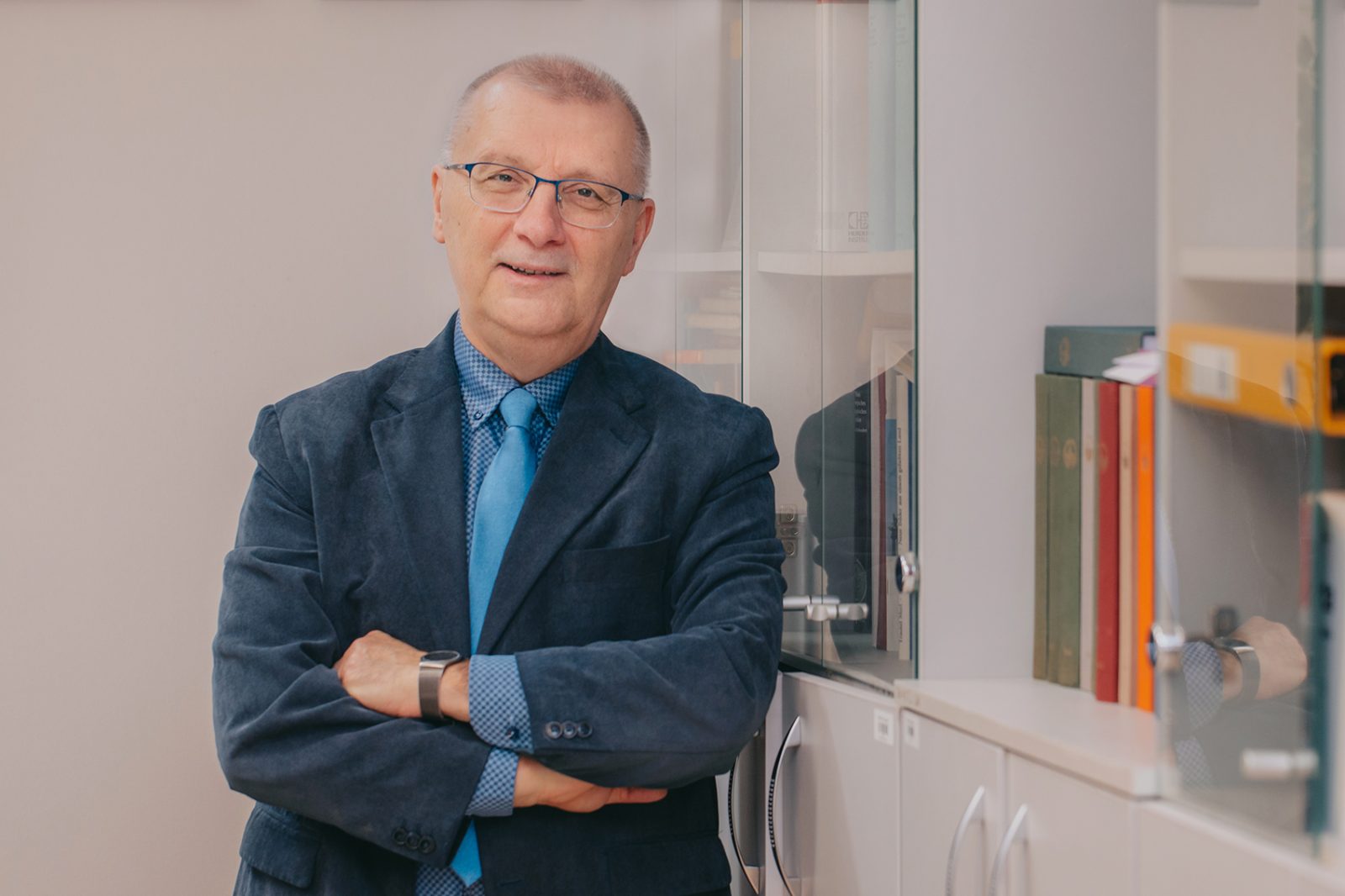
Science and Culture Network in the Weimar Triangle
In October 2023, the “Science and Culture Network in the Weimar Triangle” was established by scientists from the University of Wrocław, as well as from French and German universities. Prof. dr hab. Marek Hałub, Head of the Department of German Language Countries and Silesian Culture, describes it.
What is the Science and Culture Network in the Weimar Triangle?
Prof. dr hab. Marek Hałub, Head of the Department of Department of German Language Countries and Silesian Culture (Institute of German Studies, Faculty of Letters, University of Wrocław):
– It was established on October 20th, by scientists from the University of Wrocław, as well as from French and German universities. The Founding Act was signed at the conclusion of the Polish-German-French scientific conference “European Cultural Relations in the Weimar Triangle”, held at the University of Education Freiburg from October 17th to 20th, 2023.
In this way, the existing long-term international cooperation has been formally confirmed.
– Yes. This is also a signal that this cooperation will continue to develop. The highlights of this cooperation so far have been three international scientific symposia on “European Cultural Relations in the Weimar Triangle”. They took place at the University of Wrocław in 2019, at the Paul Valery University in Montpellier in 2021, and at the University of Education Freiburg in 2023.
Who is involved in this project?
– On behalf of the University of Wrocław, this project is led by employees of the Institute of German Studies, supported by the university authorities, who intend to organise the fourth edition in the cycle of the mentioned conferences in Wrocław in September 2025. It is worth noting that simultaneously translated conference lectures are delivered and published in the native languages of the speakers, i.e., in Polish, French, and German. So far, they have been published in two volumes, the third will be issued in 2024.
Relations between Poland, Germany, and France – this is a very broad topic with many issues. What do you focus on in this cooperation?
– Polish, French, and German scientists involved in this project are united by the desire to give a new quality to the current European discourse, as captured in the volume published in 2020 containing the results of the Wrocław conference: “For the current European discourse – shaped both politically and culturally by Eurosceptic views – the challenge becomes the search for refreshing impulses, especially through the intensification of relations between Poland, Germany, and France. A particularly significant role in this regard is assigned to the identity-shaping function of culture”.
So, culture, but also history.
– Yes, and I will quote another reflection from the introduction to the mentioned volume: “Mutual relations and connections between Poland and Germany, Poland and France, and France and Germany in the sphere of history and culture have been the subject of intense, bilaterally oriented scientific research in recent decades, yet their trilateral potential has not been exhaustively presented in science so far”. The aim is to “present in a broad temporal perspective, from the Middle Ages to the present day, trilateral historical and cultural processes of exchange and connections between Poland, Germany, and France (…)”. This includes issues related to cultural and knowledge transfer, mutual perception, and reception issues.
What is the role of young researchers in this project?
– Currently, the Network, as a common platform to support projects in the presented areas both materially and financially, is in the organisational phase. However, it is important to emphasise how important an initiative of this trilateral cooperation is the panels of young researchers, with one of the priorities being the promotion of doctoral students and students education in the spirit of the Weimar Triangle.
Compiled by Katarzyna Górowicz-Maćkiewicz
Quotes from: Andrea Chartier-Bunzel, Marek Hałub, Olivier Mentz, Matthias Weber (red.): Europäische Kulturbeziehungen im Weimarer Dreieck. Europejskie relacje kulturowe w ramach Trójkąta Weimarskiego. Les relations culturelles européennes au sein du Triangle de Weimar, Berlin–Boston 2020, s.9.
Translated by Karolina Łodyga (student of English Studies at the University of Wrocław) as part of the translation practice.



